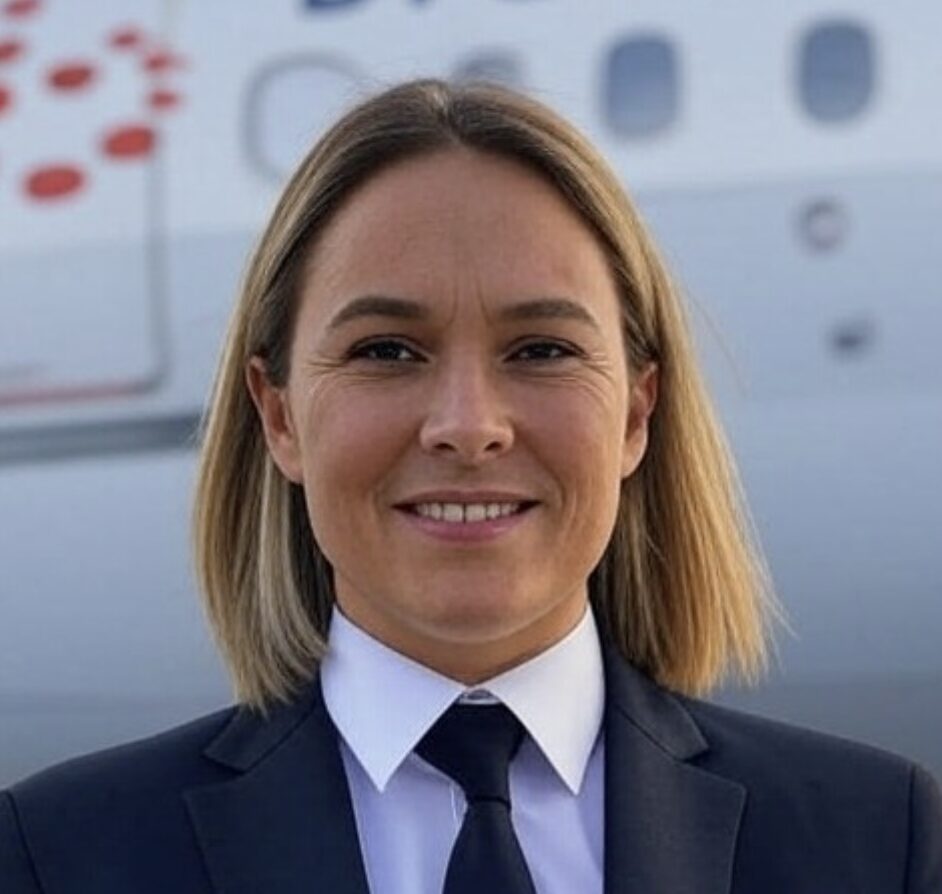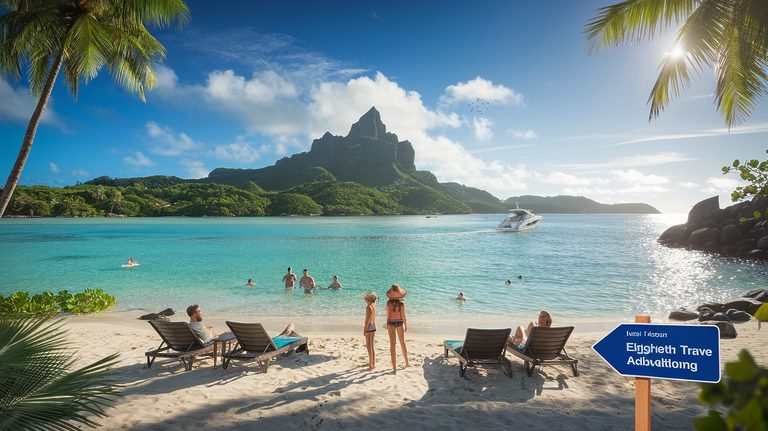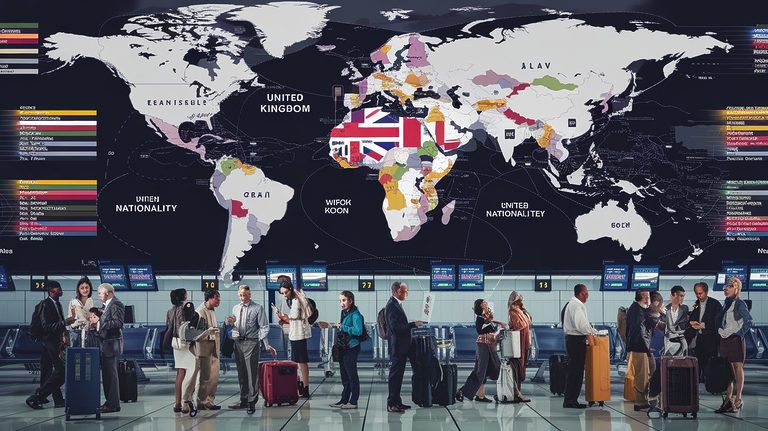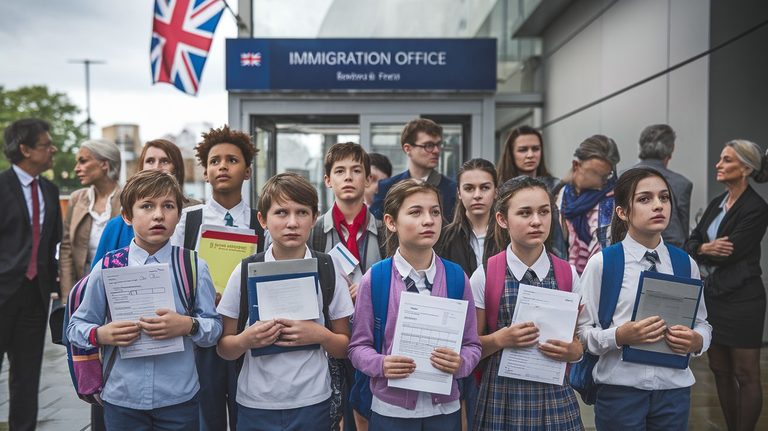As the landscape of international travel evolves, the U.S. government is poised to implement a significant measure affecting entry requirements for certain nationalities. Starting in mid-August 2025, a one-year pilot project will introduce a financial guarantee of up to $15,000 for select applicants applying for B-1 and B-2 visas. This initiative aims to address the issue of visa overstays, a concern that has prompted the government to tighten its regulations in an effort to ensure compliance and maintain national security.
The U.S. government has announced a significant new measure that will introduce a $15,000 bond requirement for nationals of certain countries seeking tourist (B-2) and business (B-1) visas. This pilot program, which is scheduled to begin in mid-August 2025, aims to address the issue of visa overstays and is expected to have a profound impact on the travel plans of impacted individuals.
Purpose of the Financial Security Requirement
The primary objective of this guarantee is to mitigate the incidence of individuals overstaying their authorized duration in the United States. According to the U.S. government, there were approximately 500,000 reported overstays during the fiscal year 2023. By implementing this bond, the U.S. aims to ensure compliance with visa conditions, which includes leaving the country before the visa expires.
Additionally, the bond system is designed to evaluate the logistics of depositing, processing, and reimbursing such financial guarantees. This initiative will also serve as a diplomatic tool to encourage foreign governments to enhance their control measures regarding the migration and public safety of their citizens.
Who Will Be Affected by This Measure?
This new bond requirement specifically targets nationals from countries identified by the State Department as having elevated rates of visa overstays. Furthermore, it may also encompass those from countries lacking robust verification and control mechanisms, as well as individuals who have gained citizenship through investment without a residency prerequisite. Although the final list of affected countries is yet to be disclosed, it is anticipated to appear on the Travel.State.Gov site at least 15 days prior to the program’s initiation.
Preliminary reports suggest that several African nations, including Burundi, Djibouti, Togo, Angola, Liberia, Mauritania, Sierra Leone, Nigeria, Cape Verde, and Burkina Faso, may be particularly impacted by this rule. Moreover, Malawi and Zambia have been noted as potential candidates for this measure.
How Does the Deposit Work?
Under this policy, U.S. consular officials will possess the discretion to set bond amounts that may range from $5,000 to $15,000, with a general expectation to impose at least a $10,000 requirement. Successful applicants will receive their bond back at the expiration of their visa, provided they have adhered to the conditions and left U.S. territory as required. In cases of naturalization or death, refunds will be processed accordingly.
Context of Stricter Migration Policies
This initiative aligns with the ongoing efforts of the U.S. administration to tighten visa requirements and combat illegal immigration. The bond requirement follows similar measures introduced in late 2020, which faced abrupt halts due to the global restrictions imposed by the COVID-19 pandemic.
Other recent actions include a significant increase in visa application fees, which will now stand at $250 for most applicants, along with more stringent requirements for visa renewals that mandate additional in-person interviews. Notably, there has been a complete suspension of visa issuance for nationals from Burundi due to persistent violations of length-of-stay regulations.
Implications for Travelers and Athletes
These evolving migration policies have incited concerns regarding the ability of athletes, especially those from affected regions, to travel to the United States for high-profile events, such as the upcoming 2026 Soccer World Cup and the 2028 Olympic Games in Los Angeles. Data from the U.S. government indicates that a substantial 98.98% of over 39 million passengers entering the United States complied with their visa stipulations in 2023. However, the new bond policy shines a light on the minority who fail to adhere to these regulations.
Authorities from Nigeria have already issued warnings to their citizens regarding severe repercussions for not complying with visa requirements, which may include deportation and future travel restrictions.
- Bond Amount: $15,000
- Purpose: Combat overstaying
- Effective Date: Mid-August 2025
- Affected Nationalities: High overstay rates
- Targeted Regions: Certain African countries
- Visa Types Affected: B-1 (business) and B-2 (tourist)
- Exemptions: Visa Waiver Program countries
- Refund Conditions: Departure, naturalization, or death
- Financial Liabilities: Protect U.S. from non-compliance costs
- Previous Measures: Visa price increase, stricter renewals
The U.S. administration has introduced a new anti-immigration measure requiring certain nationals to submit a $15,000 bond for tourist (B-2) and business (B-1) visas, effective mid-August 2025. This pilot program aims to reduce overstay incidents, estimated at 500,000 in fiscal year 2023. The bond, adjustable between $5,000 and $15,000, is geared toward nationals from countries identified by the State Department with high overstay rates, particularly in Africa. Nationals from Visa Waiver Program countries are exempt from this requirement. This initiative is part of ongoing efforts to tighten immigration policies and enhance compliance with visa conditions.

Hello! I’m Elisa, a 45-year-old travel companion with a passion for exploring new places and cultures. With years of travel experience under my belt, I thrive on creating memorable journeys for my clients. Let’s embark on an adventure together!





